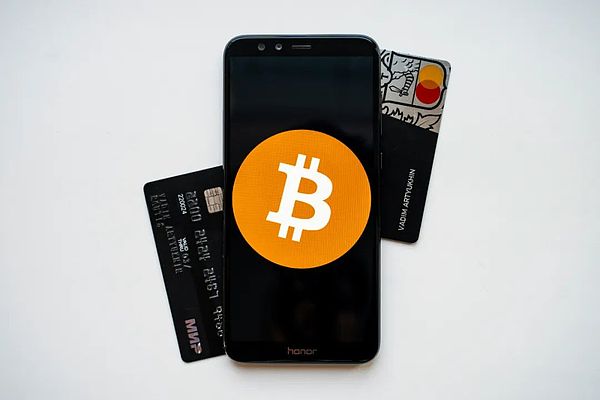Have you heard of VCC? In view of the rapid growth of user demand for overseas shopping, cross-border e-commerce, subscription services, etc., virtual credit cards (full name Virtual Credit Card, hereinafter referred to as VCC) are becoming one of the mainstream payment methods, and are favored by users for their convenience and efficiency. In essence, the main functions of VCC are the same as those of traditional physical credit cards, and they have their own card number, expiration date and security code. The only difference is that VCC only exists in the form of data on the Internet or mobile applications, unlike physical credit cards that have actual plastic or metal cards. VCC is usually issued by several types of institutions such as banks, large financial services, fintech companies and cross-border payment platforms. At present, many cross-border payment platforms are competing to provide cross-border payment solutions, using virtual credit cards as a payment method.

The general participants of VCC cards are as follows: issuers (such as banks or financial institutions) are responsible for issuing and managing virtual credit cards, ensuring the security and legality of virtual credit cards; payment platforms (such as Alipay, WeChat Pay, etc.) provide channels and services for using these cards for payment, providing convenient payment experience and a wide range of usage scenarios; merchants and e-commerce platforms: merchants and e-commerce platforms that accept virtual credit card payments, enabling users to use virtual credit cards in various online and offline scenarios; users: individuals or corporate users who ultimately use virtual credit cards for payment. They apply for and use virtual credit cards through these platforms and institutions to conduct various online transactions.
With the widespread popularity of virtual currencies around the world, some VCC issuers have also tried to combine them with virtual currencies to acquire more potential users.
Recently, Mankun Law Firm received a consultation from an overseas company that plans to issue VCC and support customers to recharge with virtual currencies such as USDT. It seems that users are recharging virtual currencies into the card, but in fact, the company converts the customer's virtual currency into US dollars, charges it into the card and charges a certain service fee. Finally, the customer can use the US dollars in the VCC card for consumption.
So, does this operating model involve potential criminal risks? If so, how should the issuer deal with it correctly? Mankun Law Firm's lawyer Xu Qian makes a brief analysis in this article.
Potential legal risks of the issuer
In response to the client's consultation, lawyer Xu Qian answered the client's questions from a series of compliance factors, such as whether the company is licensed, application process, identification of customers and transactions, foreign exchange control, and whether to deposit customer funds in the company. The following are the main risks that VCC issuers need to pay attention to, which we summarized during the consultation process.

1.Unapproved, suspected of illegal operation
Users who often read Mankiw's articles should have a general understanding that both the traditional financial industry and the financial field involving Web3 are franchise industries, that is, they are not allowed to operate financial business without a license or beyond the scope. In addition, financial licenses have national boundaries, and overseas institutions must comply with domestic regulatory rules when conducting business in China.
However, in actual use, we often encounter that many VCC card issuers only hold financial licenses in their location and meet the business development requirements of local laws and policies, but do not have financial licenses from other countries or regions, which will cause the financial business they engage in within the country to be illegal financial activities. Under Chinese criminal law, engaging in fund payment and settlement business without the approval of the relevant state authorities, with an amount of more than 2 million yuan, or illegal income of more than 50,000 yuan, may be deemed to be an illegal business crime.
This is why some VCC cards cannot be applied for when the user's IP is located in China. This is obviously because such VCC card issuers have failed to obtain relevant domestic licenses.
2. Fund sedimentation, possibleillegal fund-raising
VCC increases the balance by recharging, so as to make online payments and consumption. The more prominent feature of VCC recharge in terms of fund circulation is that the recharged funds must be circulated through the VCC card issuer or the third-party payment platform. Many card issuers complete the fund recharge and delivery through the form of third-party payment; some card issuers choose to transfer funds through personal accounts. At this time, the VCC card issuer acts as a third-party payment platform.
When the user recharges but does not consume it all, and does not transfer it to other accounts, funds will be retained in the VCC payment platform account, which may result in a large amount of funds being deposited in the platform account. This model is somewhat similar to the WeChat wallet or Alipay that we often use. When we recharge the wallet, the money is placed in the account of these platforms before the money in the wallet is consumed.
At this time, the operator of the VCC card issuing institution controls the flow of the deposited funds. If the operator uses these deposited funds for higher-risk investment activities, and then suffers from poor management or even runs away with the funds, the credit risk and customer fund losses caused are self-evident. In this case, the VCC issuer may be suspected of illegal fundraising.
3.Other common legal issues
In addition to some legal risks involved in the issuance of the card itself, VCC will also be used for some potential illegal activities, causing the issuer to be affected.
Anonymity and convenience, easy to be used for money laundering. Some VCC platforms do not require uploading identity documents, and can be applied for using third-party verification. Some platforms do not do effective identity recognition for cardholders, making virtual credit cards anonymous. In addition, once VCC cards can be recharged through virtual currency, their anonymity and convenience will be significantly improved, making them more likely to be used for money laundering activities. Previously, there were media reports of money laundering cases using fake transactions of overseas virtual credit cards.
Cross-border payment, breaking through foreign exchange control. Some virtual credit cards support virtual currency recharge, and some virtual credit cards can be withdrawn through overseas cards and overseas merchants, breaking through domestic foreign exchange regulatory requirements and realizing cross-border conversion between local currency and foreign currency. For example, a VCC can be recharged with RMB and then converted into US dollars for consumption. Cardholders only need to recharge and withdraw cash through VCC to realize the acceptance between RMB and US dollars. However, domestic individuals who engage in foreign exchange transactions must obtain the corresponding business qualifications in accordance with the law, otherwise they are also suspected of private trading, disguised trading, and speculation in foreign exchange.
VCC mainly solves the problem of cross-border payment. If the platform knows that others use its services to carry out criminal activities, but still provides payment settlement and other assistance, it may constitute the crime of assisting information network criminal activities. In addition, the application and use of virtual credit cards involve a large amount of sensitive personal information, financial information, transaction information, etc. If information security protection measures are not in place, it may lead to information leakage, identity fraud, asset theft, and even more serious criminal problems such as extortion and kidnapping.
Mankiw's Compliance Suggestions
Taking into account the above potential risks, if you want to issue VCC, especially VCC that can be recharged with virtual currency, please accept Mankiw's 5 major suggestions:

1. Obtain legal licenses
Ensure that the platform obtains relevant financial licenses and permits before operation, and conducts business legally and in compliance with regulations. If financial business wants to operate nationwide, it can only be issued by the central financial management department. National financial licenses. In addition, attention should also be paid to the financial licenses and permits of the place where the platform users are located.
2.Strengthen KYC and KYT
Implement strict customer identity verification (KYC) procedures to ensure that the identity of each user is authentic and reliable, and prevent fake accounts and illegal activities. If there are risks or other problems in the transaction, the user can be found directly, which is conducive to combating crime and protecting the safety of user assets. In addition, customer transaction identification (KYT) should also be carried out. By understanding customer transactions, the authenticity, value and liquidity of assets and transactions can be identified.
3.Establish a sound transaction monitoring system
Establish a sound transaction monitoring system to promptly detect and report suspicious transactions to prevent money laundering and other illegal activities. If there are frequent or short-term changes in the IP address used for transactions, transactions from accounts with higher risks, and unusual nature and scale of transactions, it is necessary to conduct a comprehensive risk quantification system analysis of transactions and accounts to fully understand the transaction risk situation. This will help the platform quickly identify suspicious or abnormal behavior patterns, thereby effectively preventing and responding to potential illegal activities such as money laundering, fraud, gambling, etc.
4.Establish a platform internal control system
Regularly train employees on laws, regulations and compliance operations to ensure that all employees understand and comply with relevant laws and regulations. Strengthen employees' awareness of anti-money laundering compliance, encourage employees to actively report suspicious activities and participate in anti-money laundering work. In the daily operation process, help employees accurately assess business risks and effectively identify risky customers and high-risk transactions. At the same time, a sound internal control system needs to be established within the platform to prevent employees from transferring or misappropriating customer assets.
5.Data protection, information security
Take effective data protection measures to ensure the security and privacy of user information and prevent data leakage. At the same time, the issuing platform must follow the payment service security standards and transaction processes to ensure the security of user funds, transactions and information. It is possible to maintain good communication and cooperation with regulatory agencies, keep abreast of the latest laws, regulations and regulatory requirements, and ensure that platform operations meet regulatory standards.
 Weiliang
Weiliang








